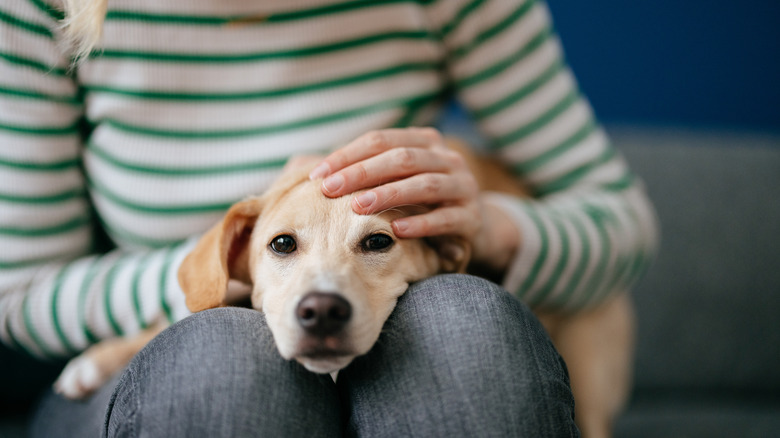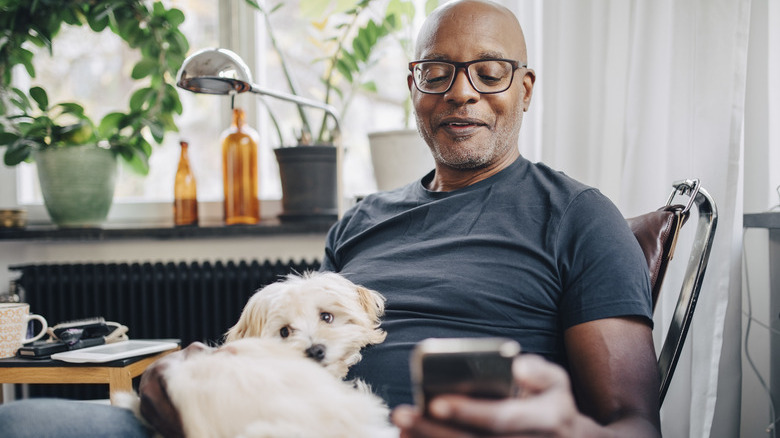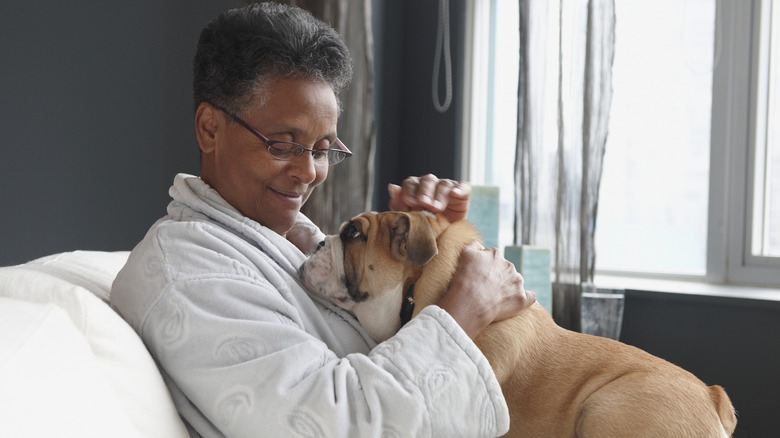What Does It Mean When A Dog Sits On You?
When you're in the mood for cuddles, there's nothing better than when a dog chooses to sit on your lap. You may have wondered why your pup does this. Most of the time, the explanation is quite simple. Dogs sit on you because they want to show you how much they love you, give you comfort, or bond with you.
Some dogs may be more inclined to sit on your lap because of their breed. This is why smaller dogs, like Shih Tzus, Malteses, and Chihuahuas, are known as lap dogs. They are the perfect size to snuggle up in any lap and have the level-headed temperament to sit quietly. Small breeds may also snuggle in your lap to get to a higher vantage point where they can clearly see their surroundings, because they like to be warm, or because they want to get away from other dogs, rambunctious children, or other adults.
Of course, some large dog breeds don't seem to know they're bigger than their human's lap and try to cuddle anyway. They might be continuing to cuddle because they were allowed to do so during puppyhood and want to continue sitting on your lap.
They may want to show affection and bond with you
Dogs express their love physically, and sitting on you could simply be a way to show their love for you. Dogs may sit on you because they feel safe and secure on your lap, or they just want to know when you move. For many dogs, sitting beside you or on top of you is also a nice way to spend time together. If you reward your dog's behavior with pets and cuddles, they may have learned that this behavior gets them lots of good affection.
If you notice that they're more apt to sit on you after you've been gone, it's likely because they've missed you. Sometimes, dogs experience separation anxiety and want to cling to you after you've returned home. In other words, jumping into your lap can be a sign they may simply be happy to see you after a long day without you.
Dogs are intuitive creatures that pick up on your every emotion. If you have had a bad day, are stressed by work, or are depressed or grieving, dogs will know and want to comfort you. Conversely, dogs will mimic positive feelings like happiness as well, and when you are feeling excited, they will feel excited. So, if you're not feeling well and your precious pup cuddles up to you, it's likely a sign of love.
They may want to mark you with scents
Dogs like to mark what they love with their scent: their home, their toys, and their humans. Dogs will sit on you to mark you with their scent and show other dogs and animals that they own you, even when they're not with you. Sometimes, they will do this after you've been away for a while or if they smell the scent of another animal on you.
Dogs may want physical stimulation
When dogs are on top of you, destroying shoes and toys, or bringing you toys, they are trying to attract your attention. Dogs may sit on you to tell you that they need you to play with them. Dogs of any age need about an hour of physical exercise every day, but many dogs have high energy levels that necessitate more activity time.
In addition to daily walks, get your dog involved in physical activities, like dog sports, trick training, or playtime at home. You can also take him to a dog park or doggie day care. Engage their minds as well with slow feeders that make dogs think about how to eat their meals and give them pet puzzles that make them search for treats.



